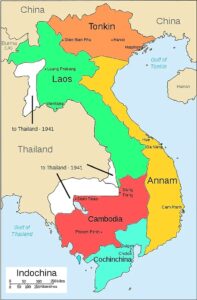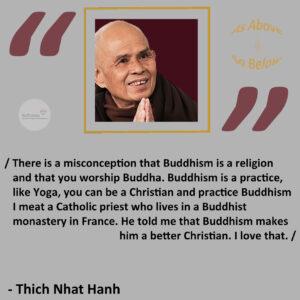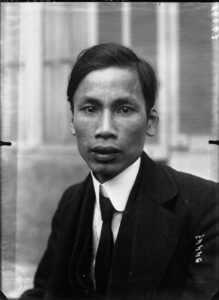Colonialism. The enforced spread of the rule of reason. But who is going to spread it among the colonizers?
∼ Anthony Burgess

French Indochina in the 1940’s.
The root cause of the American War in Vietnam can be traced back to the colonization of Vietnam by France. By 1890 the French controlled present day Vietnam, Laos, and Cambodia. European powers were scrambling to colonize the remaining third world countries in Asia, Africa, and the Americas. Colonialism brought multiple benefits to the nation doing the colonizing, with few benefits and multiple miseries to the nation being colonized.
Economic benefits for the colonizers included access to cheap raw materials and cheap labor as well as new markets to push their goods upon, while keeping the goods of others out. Though French expansion started in the 17th century along with the Industrial Revolution, it accelerated during the 19th century. Centered in Europe, the industrial revolution brought many benefits to the newly industrialized nations. New jobs and income for the masses brought economic growth, stability (for a time) and power. The new income and availability of product, along with competitiveness and jealousy, contributed to the rapid colonization of other lands in the 19th and early 20th centuries.
The French rationalized colonization by adopting the position they called mission civilisatrice, or “civilizing mission” which was akin to the British “white man’s burden” theory. I would like to say that mankind has become enlightened since those days and trouncing another nation/culture just because you can has become a thing of the past…but as we take a look at current events we know better.

Neither the French, nor the Americans understood Buddhism
The upheaval effect of colonization took its toll on Vietnam in several ways. National, economic, and religious foundations were battered. Catholic France sent in teams of priests and monks to convert the heathen Buddhists. The Montagnards (hill tribes) did not escape the conversion either as priests and monks ventured into the Central Highlands targeting the pagans living in that area.
France placed an unending stream of governors in charge of Vietnam throughout their colonial adventure there. With no central policy, the governors practiced their trade at whim and will, and when the seat changed, policies often took a 180 degree turn from the previous occupant’s policies.
The French governors and their underlings, in turn selected Vietnamese underlings for lessor roles in government. Those underlings operated with even less oversite than their French masters. The whole civil structure broke down, it was confusing and sometimes chaotic regarding governance on every level, and the French played various segments of the Vietnamese off of each other, keeping them “out of French hair”, so to speak.
With economics as the driving factor, the French rerouted the subsistence economy of Vietnam into a slave labor system, redirecting much of the value to French coffers. And of course, they also started off loading the vast natural resources of Vietnam. Rice, rubber, tin, zinc, and many other products were harvested and redirected to French concerns. To rub salt in the wound, the French heavily taxed the Vietnamese, squeezing them out of whatever piastres they had left .
A Few Crumbs for the Vietnamese
The author will tepidly acknowledge that French occupation did kick up a few benefits for the Vietnamese. A small percentage of Vietnamese received a more thorough education via French institutions. A self-serving activity, those Vietnamese receiving a better education were intended to fill lower-level administrative jobs in the new hierarchy. Transportation systems, improved, if only to move goods into French hands more rapidly. Exposure to the outside world, whether the Vietnamese welcomed it or not, was another result of colonization.
Medical treatment improved under the French, but again, those receiving it were primarily involved in lower-level positions supporting French interest, any additional recipients were happenstance.
Resistance, Persistence and Victory
From early on many Vietnamese chafed under French rule, and there were various rebellions until the French were finally driven out in the 1950’s. Ho Chi Minh, the charismatic leader of the rebellion against the French, Americans and South Vietnamese, toiled his whole life resisting, fighting and advocating against the French and their successors. (Ref. previous Blog “Ho Chi Minh in Five Acts”)
Between 1885 and 1889 the The Cần Vương (Vietnamese: [kə̂n vɨəŋ], chữ Hán: 勤 王, lit. ‘Aid the King’) movement was a large-scale Vietnamese insurgency against French colonial rule. Due to treachery within their own ranks and lack of unity, the movement failed, although some of the rebels continued fighting until 1895.

French soldiers found no easy going in Vietnam
Other resistance movements sprung up over the years leading to WWII when the French were driven out of Vietnam by the Japanese who replaced them as masters of Indochina. Strange though it may seem, the Vietnamese partnered up with the French in an effort to drive the Japanese out. In a bitter blow to Vietnam, British troops re-armed surrendering Japanese soldiers to keep Vietnamese out of power. After the Japanese total surrender the French refused to relinquish governance back to the Vietnamese and war broke out between the two, until the French were driven out after their defeat at Dien Bien Phu.

The charismatic revolutionary Ho Chi Minh, proved a difficult foe for both France and the U.S.
America, forced to back the French in Vietnam in exchange for a French crackdown on communism in France, then assumed the role of the now disposed French.

Greene’s telling of early American involvement in Vietnam
Thus began America’s inadvertent role supporting a colonial power, contradictory to its own principles. The rest, as they say, is history.
***
You may share this article in its entirety, crediting Joe as the author. Copyright protected, all rights reserved © Joe Campolo Jr
Updated: August 20, 2024 at 7:32 pm
About the Author
Joe Campolo Jr.
Joe Campolo, Jr. is an award winning author, poet and public speaker. A Vietnam War Veteran, Joe writes and speaks about the war and many other topics. See the "Author Page" of this website for more information on Joe.
Guest writers on Joe's blogs will have a short bio with each article. Select blogs by category and enjoy the many other articles available here.
Joe's popular books are available thru Amazon, this website, and many other on-line book stores.





Eisenhower logistically supported the French military forces in Indochina. JFK sent in military advisors, supported the assassination of the Diem brothers, he was going to withdraw advisors but was assassinated before he could. Under LBJ, the manufactured Gulf of Tonkin incident provided the excuse for the US to precipitate the American military into combat operations with NVN.
The Truman agreement, which guaranteed support to the French in Vietnam in exchange for the French crackdown on growing communism in France, preceded Eisenhower’s involvement.
The root cause of all military activity in Vietnam in the twentieth century was the French colonization of Vietnam.